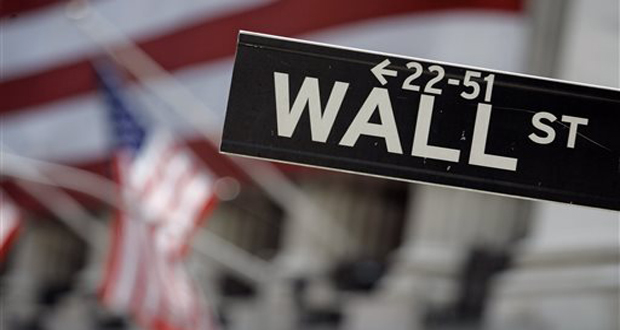U.S. stocks rose Wednesday as investors bet that technology companies and small, domestically-focused firms will continue to do well even if the trade dispute between the U.S. and China gets worse. Media companies jumped after Disney reached a new deal with Twenty-First Century Fox.
Facebook, Microsoft and Alphabet led the rally in technology companies as the Nasdaq composite topped the all-time high it set last week. Disney sweetened its deal to buy Fox’s entertainment businesses to $71.3 billion, topping an offer from Comcast earlier this month. Other media companies like Netflix and Viacom climbed as investors hoped more deals will follow.
Starbucks plunged to its lowest price in a year and a half after the company said its U.S. and China businesses both ran into trouble during the current quarter. That led to losses in other restaurant companies such as McDonald’s, which contributed to a small decline in the Dow Jones industrial average, its seventh straight down day.
General Electric dipped following the announcement that GE will be removed from the Dow next week, ending a 110-year stint. Shares of Walgreens, its replacement, surged.
Smaller and more U.S.-oriented companies such as retailers climbed. While technology companies are the biggest sector of the S&P 500 and make most of their sales overseas, just the opposite of small caps, investors feel that both types of stocks are less vulnerable to tariffs than industrial companies or household goods makers, among other sectors.
Sameer Samana, global equity and technical strategist for the Wells Fargo Investment Institute, said investors aren’t sure what to make of the administration’s mix of harsh pronouncements and conciliatory statements. While the market has taken some sharp drops during the trade dispute, he said Wall Street usually comes back to the fact that the global economy, and especially the U.S. economy, is doing well.
“For the most point things are pretty good from an economic and fundamental standpoint,” he said. Samana added that technology companies have often led the way when the market recovers from trade-related slumps because of their strong earnings, and because China’s government can’t put tariffs on too many U.S. technology companies because it is trying to build up its own technology sector.
The S&P 500 index rose 4.73 points, or 0.2 percent, to 2,767.32. The Nasdaq composite gained 55.93 points, or 0.7 percent, to 7,781.51. The Russell 2000 index of smaller-company stocks added 13.54 points, or 0.8 percent, to 1,706.99, also closing at a record high.
But the Dow industrials slipped 42.41 points, or 0.2 percent, to 24,657.80. The Dow has fallen for seven days in a row, its worst streak in more than a year, although the losses have been fairly small.
Markets have been on edge with the U.S. and China announcing tariffs on each other’s imports and threatening more. While global stocks fell Tuesday, the S&P 500 finished with a loss of just 0.4 percent as investors decided that many U.S. industries don’t face a major threat from the proposals and that negotiations might take some of the sting out of the proposed taxes.
Twenty-First Century Fox jumped again after it accepted Disney’s latest offer. It said yes to a $52.4 billion bid from Disney in December before Comcast offered $65 billion in cash, and some experts think Comcast will raise its offer again. Fox surged 7.5 percent to $48.08 while Disney added 1 percent to $107.15 and Comcast climbed 1.8 percent to $33.39.
Starbucks sank 9.1 percent to $52.22 after a weak sales forecast. Starbucks said it didn’t do as many transactions in China as it expected, and the controversy that followed the arrest of two black men at a Philadelphia store temporarily slowed its U.S. business. Other restaurant chains also struggled, and Dow component McDonald’s lost 1.5 percent to $162.56.
General Electric was part of the Dow when it was created in 1896, and it’s been a one of the 30 stocks on the index continuously since 1907. But GE has been selling businesses for a decade, reducing its value, and it’s by far the least expensive Dow stock. The Securities and Exchange Commission is investigating the company over a $15 billion hit taken to cover miscalculations made within an insurance unit. Adjusted for inflation, GE was worth around $860 billion in mid-2000, but it’s worth about $112 billion now.
GE slipped 0.5 percent to $12.88. Walgreens, which replaces GE in the Dow on Tuesday, jumped 5.2 percent to $68.
U.S. crude rose 1.8 percent to $66.22 and Brent crude, the international standard for oil prices, lost 0.5 percent to $74.74 a barrel in London. Wholesale gasoline lost 0.7 percent to $2.02 a gallon. Heating oil fell 0.7 percent to $2.11 a gallon. Natural gas jumped 2.2 percent to $2.96 per 1,000 cubic feet.
Bond prices inched lower. The yield on the 10-year Treasury note rose to 2.93 percent from 2.90 percent.
Gold fell 0.3 percent to $1,274.50 an ounce. Silver lost 0.1 percent to $16.31 an ounce. Copper dipped 0.2 percent to $3.04 a pound.
The dollar edged up to 110.22 yen from 110.07 yen. The euro rose to $1.1588 from $1.1575.
The FTSE 100 in Britain added 0.3 percent and Germany’s DAX rose 0.1 percent. France’s CAC 40 lost 0.3 percent. After sharp losses the day before, Japan’s benchmark Nikkei 225 index rebounded 1.2 percent and South Korea’s Kospi gained 1 percent. Hong Kong’s Hang Seng rose 0.8 percent.
(AP)











